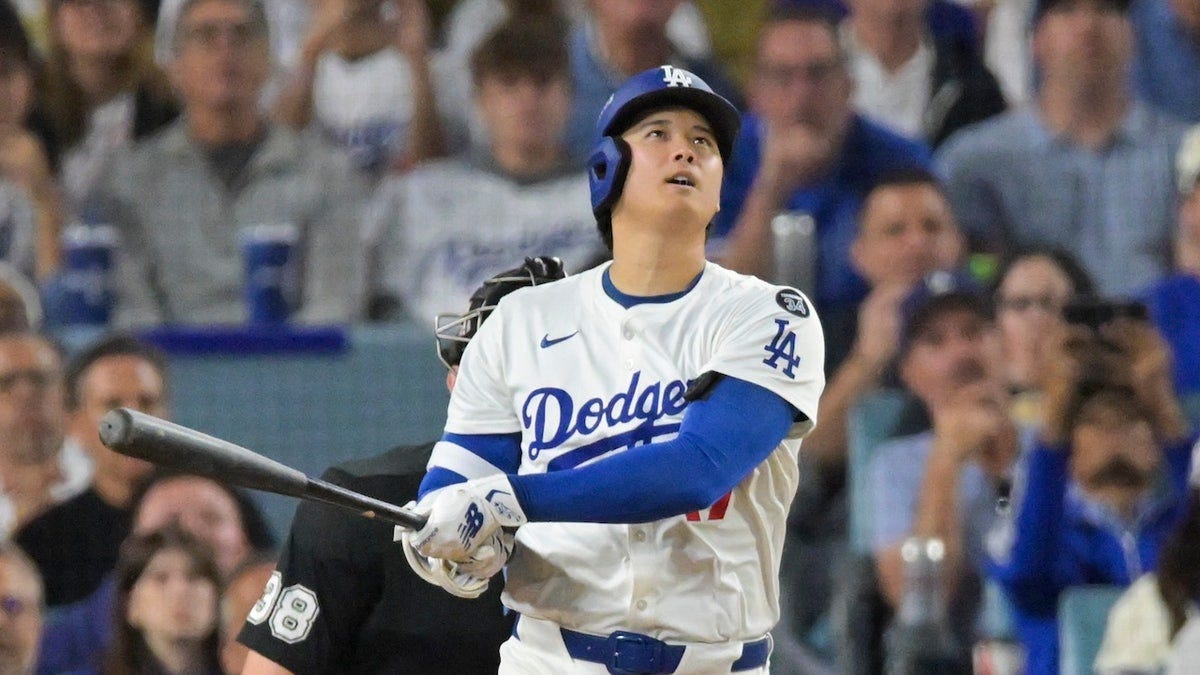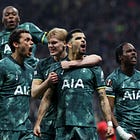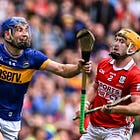Parity is bad, actually
Why the Los Angeles Dodgers are good for all fans
The team with the highest payroll in American sports, the team that has mastered the art of deferred money, the team that has appeared in seven of the last ten semifinals, and the team that won the championship last year, is, once again, going to the World Series. That is a good thing.
There is a difference between something being good and liking that thing. I did not like that the Dodgers stole two-time MLB Bald Star Mookie Betts from the Boston Red Sox in 2020. I did not like when the Dodgers signed the most talented baseball player ever in Shohei Ohtani. I did not like, in the offseason, when they acquired or re-signed the following players:
Starting pitcher Blake Snell, a two-time Cy Young Award winner who every May sprains an ankle or jams a finger on purpose so he’s fresh to dominate in the playoffs.
Reliever Blake Treinen, whose pitching in relief has been as good as his politics are bad.
Outfielder Teoscar Hernandez, who hasn’t exerted himself in years and yet is impossible to dislike and only gets big hits.
Infielder Hyeseong Kim, a phenom from Korea who, for the Dodgers, occasionally pitch-runs.
Pitcher Roki Sasaki, a beanstalk from Japan who throws 13 different pitches and 145 m.p.h. (My conspiracy theory is Sasaki’s “injury” this year, then his demotion to the minors, then his command issues were all a sham to obscure the team’s plan to turn him into an untouchable closer in the postseason.)
Tanner Scott, Kirby Yates, and Michael Conforto, two relievers and an outfielder, respectively, who earned a combined $48 million this year, stunk it up, didn’t make the postseason roster and none of that mattered.
Utility man Kike Hernandez, who at this point in his career serves mostly as the Dodgers’ mascot—until the playoffs, when he annually converts into Reggie Jackson.
Starter Clayton Kershaw, who posted a more-than-respectable 3.36 ERA over 112 innings in this, his last season.
Finally, and to say the least, I did not like that the Dodgers beat the Philadelphia Phillies in the National League Division Series.
It’s easy, then, to not just hate the Dodgers, but also to pin on them whatever grievances toward the game we have. The foremost complaint is that their spending results in an unfair playing field. Of course the highest-spending team in the country’s second-largest city regularly goes to and wins the World Series.
Along these lines, ESPN reporter Jeff Passan framed the National League Championship Series between the Dodgers and Milwaukee Brewers in cataclysmic terms. “The winner…. could determine whether Major League Baseball is played in 2027,” he wrote:
This might sound far-fetched. It is not. What looks like a best-of-seven baseball series, which starts Monday as the Milwaukee Brewers host the Los Angeles Dodgers in Game 1, will play out as a proxy of the coming labor war between MLB and the MLB Players Association.
Owners across the game want a salary cap -- and if the Dodgers, with their record $500 million-plus payroll, win back-to-back World Series, it will only embolden the league’s push to regulate salaries. The Brewers, consistently a bottom-third payroll team, emerging triumphant would serve as the latest evidence that winners can germinate even in the game’s smallest markets and that the failures of other low-revenue teams have less to do with spending than execution.
I guess we’re not getting baseball in 2027 because the Dodgers embarrassed the Brewers in four games, thanks in part to Ohtani in Game 4 having possibly the greatest single-game individual performance in baseball history.
Dodgers manager Dave Roberts acknowledged and poked fun at the critics. “Let’s get four more wins and really ruin baseball,” he said amid the celebrations. He is wrong, though. The current Dodgers team is what makes baseball great. The lack of parity in MLB is what makes it the best among American sports leagues.
Narratively, villains are essential for telling the story of a league or competition and drawing interest in the sport. I have no quantitative way to prove this, because why people care about sports isn’t quantifiable, but I agree with Sam Stejskal when, for The Athletic, he wrote, “Nothing is surprising when everything is unpredictable.” He was referring to Major League Soccer, which has the most parity among North American sports leagues and, not coincidentally, is irrelevant and bad.
This NFL season is among the most disorienting I can remember because there is no reference point, no barometer for greatness. “Can anyone beat the Philadelphia Eagles?” was a question that loomed all offseason and the answer turned out to be: yes, pretty easily. The defending Super Bowl champs are a shell of the team they were last season, partly because the league’s salary cap rules makes it difficult to sustain a winning team. The best teams right now are the Tampa Bay Bucs? The Indianapolis Colts? Who literally cares about these teams? Who’s even on them?
Part of why the Eagles’ Super Bowl victory last year was so sweet is because they beat the once-indomitable Kansas City Chiefs. A team is unbeatable until they’re beaten. That’s the thrill of sports. My Phillies group chat debated what the team’s goals should be next season, and to me there is only one answer: to run once again into the brick wall that is the Dodgers. What’s the alternative? Do a rebuild and wait out the Dodgers dynasty? That’s loser behavior. Or change the rules so that the Dodgers can’t be powerful any more? That’s what Republicans do. It’s much more fun and fulfilling when dynasties are overcome in battle. It’s lame when they crumble slowly (or never exist in the first place) because of rules cooked up by oligarchical sports team owners.
But engagement is downhill of competition, which parity neuters. “Competitive balance was a technical notion dreamt up by the leagues themselves to defend themselves from antitrust suits,” economist Stefan Szymanski told The Athletic. By calling for more parity—by calling for the Dodgers’ spending to be capped or controlled in some way—we are doing the bidding of billionaire owners and their anti-labor ideologies.
To put a finer point on it, labor controls like the salary cap degrade the quality of competition and exploit players. I’ve written about this relating to MLS:
To MLB:
To European football and the NBA:
And even to hurling:
If Brewers fans want a better chance at winning the World Series, then they should protest Mark Attanasio, owner of the Brewers, Bucks, and a $2 billion net worth. He is the man who lobbied for and accepted half a billion dollars in public money and chose to field a team whose payroll was less than a fourth of that.
Baseball is incredible right now. MLB features and markets global superstars. Its most famous teams are regularly in contention. The pitch timer is the single-greatest sports rule change of my lifetime. The New York Mets missed the playoffs in Amazin’ Mets fashion.
The Dodgers aren’t breaking baseball. They are showing how much greater it is when teams invest in themselves. This is to say the Dodgers are showing how much greater a business is when it invests in its employees relative to its competitors. If we hate the Dodgers and punish their success, then it’s because they remind us of what we used to value.








Rip Andre ethier and matt kemp they would’ve loved dodgers baseball 2025
A masterful defense of free trade vs anti trust protection. And besides, when there was full restraint of trade and no free agency, the Yankees ruled for eighty years! As a Yankees fan I’d love to go back to that. Both MLB and the MLBPA must hire you as senior advisor for the new contract. Thank you!